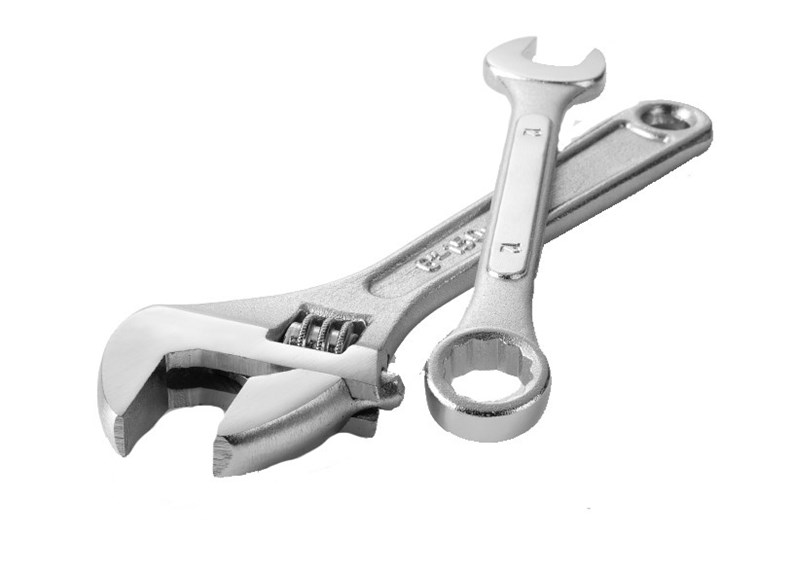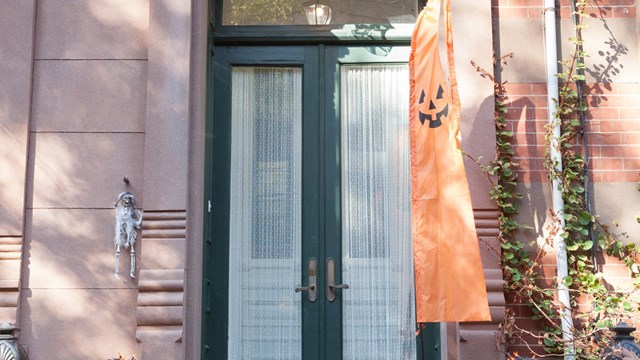For the average condo owner juggling work, kids and family and taking care of one's home can seem daunting. Just remembering to take out the trash and wash the windows once a year can require elaborate checklists and days of planning. Now imagine staying on top of all that—in addition to mowing lawns, cleaning pools, patching roofs, fixing signs and a million other tasks—for 50, 100 or 200 homes. It's enough to strike fear in the hearts of many brave souls. Fortunately, most property managers are well-prepared to care for the homes in their charge.
So what are the most important maintenance issues facing managers and building staff? And what questions should boards and residents be asking to make sure everything that needs to be handled is being handled? The following are ten areas that most co-op and condo managers would concur are paramount to a well-run, efficient maintenance system.
As with any large-scale project, organization and planning are the keys to success. Elaine Warga-Murray of EW Murray Associates Inc., in Howell believes deeply in the power of the calendar to make sure that no item, no matter how big or small, gets missed.
"It's important to have a master calendar that includes all maintenance: monthly, cyclical and seasonal," she says. "The calendar should establish all the categories of maintenance services— lawn, snow clearing, etc.—and then identify which staff members or contractors will be assigned to the job."
To really achieve a thorough plan, the manager can then have specifications for each task, identifying what materials should be used to undertake that task and how it should be completed.
2) What are some of the largest maintenance issues facing managers and staff?
The answers to this question are nearly endless, as president Paul Santoriello and vice president Ted Tucker of Taylor Management in Morristown, discovered when they polled their staff on this question. More than two dozen answers poured in from managers, ranging from catch basin cleaning, mail box maintenance, power washing and sealing of decks, painting and replacing aging wood, asphalt rejuvenation, parking lot re-striping and maintenance of security systems.
Larger jobs, too, require significant attention. HVAC systems must be inspected, cleaned and tested each year. Roofs, especially, have to be inspected to ensure that they are free from potential leaks caused by winter ice damage.
"During the rainy season, roof leaks and water infiltration are a big issue," Warga-Murray says. "Roof vents can cause problems. There could be caulking issues, marginal roofs might leak. You always have to have that master list and be prepared."
Things that often escape every-day attention such as chimney caps and chases must be examined. "Winter takes its toll," Tucker says. "They might rust or leak. We have to get a roofer to go up and inspect them at least every two years. If water gets in the chimney chase, it will cause problems later. Maintenance and replacement on things like this is imperative."
3) With so many things needing to be done at any given time, how does my manager decide what's most important?
When it comes to budgets and manpower, there's always a limit. How, then, does management determine what maintenance need gets attended to now and what gets put off until later?
The first thing on anyone's mind should be safety, Santoriello says. "Safety is always number one," he says. "You have to look out for tripping hazards, filling cracks in roadways, maintaining gym equipment. On our management calendar, we know there's a hit list of things to look at in the spring, for example."
Even items that may seem insignificant can take on added weight where safety is concerned. "Fading signs may seem minor," says Tucker, "but with stop signs or yield signs, we'll look to see if the sun has faded them over the winter or if snow plows have done any damage to them."
4) Who's getting the job done?
One of a manager's most important jobs is the hiring and oversight of the staff and contracted labor carrying out the maintenance for a co-op or condo community. Hiring contractors can be a tricky enterprise, but Tucker says that job's made easier by the Community Associations Institute (CAI)'s vendor directory and other resource guides. Directories like that, he says, help him find businesses that are interested in working with co-op and condo communities.
"Doing work for condos is a fine art," he says. "These crews have to work with residents." And keeping those residents pleased goes far beyond what's necessary for shoveling shopping mall walkways or patching a roof at the local Seven-Eleven. "Not every type of vendor is interested in doing this work," Tucker says. Doing the footwork and finding the people who are committed to achieving the quality of work that the manager's co-op or condo community deserves ultimately will be worth the effort. As any manager knows, keeping residents happy and well-cared for is the most important aspect of the job.
5) Who does all the paperwork? Who's crossing all the t's and dotting all the i's?
Every task not handled by on-site maintenance staff should have a contract associated with it, says Warga-Murray. The manager should review the specifications of each job, have the board sign off on them, then get bids based on those specs and finally make recommendations on contractors to the board for their final decision. Beyond that, the manager should oversee the fulfillment of each contract to ensure that specifications are met and completed. For larger jobs such as roofing or structural needs, it's imperative to have expert input from professional contractors: engineers or architects, for example.
6) When it comes to fire safety and maintenance, what's the drill?
Inspecting fire safety equipment at least once a year is imperative in the maintenance scheme of things, says Tucker. "You hope you never need to use these fire suppression systems, but if you do, you absolutely want to make sure they work." That means checking pressure gauges, ensuring that pipes and water delivery systems are rust-free and functioning smoothly. It also means checking smoke detectors, ensuring that exits are free of obstruction, that fire doors are working, fire extinguishers are functioning and that exit signs are clearly marked.
7) Like Boy Scouts, should managers always be prepared?
Preparing for the unexpected plays an important role in any manager's maintenance game plan. This is done partly by planning ahead and using the maintenance calendar to its fullest extent. "I look at our industry as being the same as the fashion industry," says Tucker. "The winter clothes are out on the racks six months ahead of time. We have to do the same thing. We start looking at pool repair needs in February—not in May right before the pool is supposed to open."
The other half of the equation is planning based on experience and past occurrences. "In New Jersey, we get the back-ends of hurricanes," Tucker says. "If we know one is coming, we have to be prepared and have landscapers and crews ready to clear trees and other debris and get things running again."
8) What are the board's duties with respect to maintenance?
As with anything pertaining to the health and well-being of a co-op or condo community, the board's responsibility is to stay informed and active. "The board should ask for the master calendar and go over all the categories, from winterizing the pool house to checking on the roof inspections," says Warga-Murray. "Next, they need to look over the list of vendors, and finally, they need to see and understand what type of emergency system is in place."
Asking questions and working in tandem with the managing agent can go a long way toward preventing significant maintenance issues in the future. "It's important to educate your board members along the way," Tucker says. If there's reason to believe that problems may arise later—perhaps this winter's snow removal bill has the potential to go over budget because of unexpected storms—it's best to let the board know as soon as there's an inkling of what might happen. Knowledge, as always, is power.
9) Who does what in the event of a maintenance emergency?
"You can't plan for the unexpected, but you can prepare for it," Tucker says. "You don't have to react to something if you're ready for it." Having back-up plans in hand and management professionals at the ready can stop a problem before it gets out of control. Most management firms will have emergency on-call systems.
"It helps to have a lot of redundancy built into that system," says Warga-Murray. Her company has two systems in place—one off-site, like a doctor's office, the other a computerized system that records messages and forwards them to the manager on call. They also have a back-up arrangement with the phone company in case the phone system goes awry.
And finally, Warga-Murray believes in the power of multiple contractors: it increases availability options in the event of emergencies. "One reason we go to contractors versus employees is because we don't have back-up employees," she says.
10) What happens when unexpected maintenance needs break the bank?
Keeping a balanced budget always requires the watchful eye of a managing agent. But when the unexpected happens—a spate of storms causes flooding or roof damage, or blizzards suddenly require large numbers of snow removal teams—that budget might suddenly lose its balance, necessitating a special assessment to cover costs.
When that occurs, Tucker recommends acting quickly to let residents know the how's and why's behind that assessment. "Most people are understanding if you tell them, 'this is what we budgeted, and this is what it cost,'" he says. "They understand the need behind it."
Tucker cautions against waiting too long, however. That storm that's so fresh in people's mind two weeks after the fact will quickly become a distant memory, putting people's affability over assessments to the test. Acting fast is always the best course of action.
With these ten big questions answered, condo owners and HOA members should have their maintenance bases covered, and be ready to relax beside trimmed shrubs, clean pools and dozens of happy neighbors.
Liz Lent is a freelance writer and a frequent contributor to the New Jersey Cooperator.







Leave a Comment